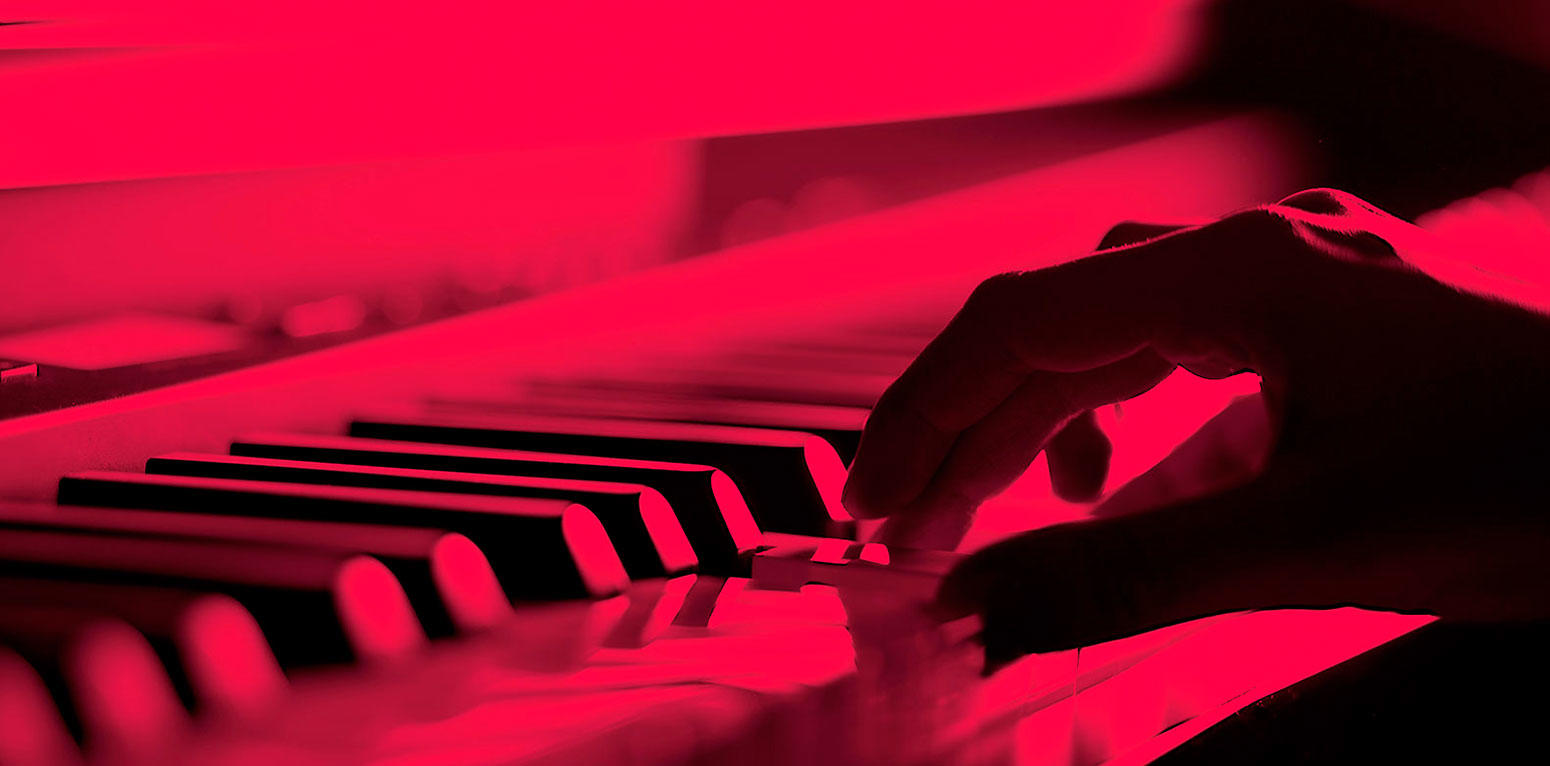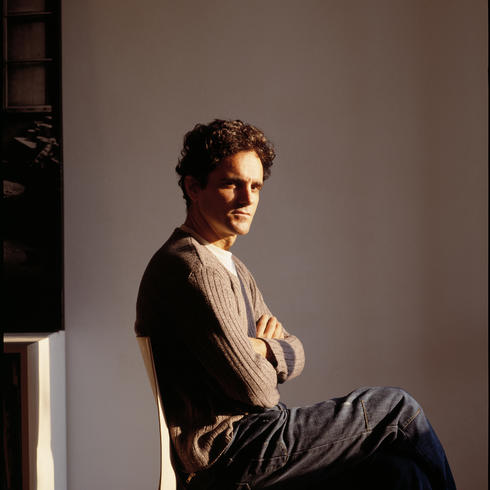© Melina Mulas
He contemporaneously studied both flute and composition at the G. Verdi Conservatory of Milan, with Giuliano Zosi and Giacomo Manzoni, respectively. He went on to advanced studies with Franco Donatoni in Milan and at the Accademia Chigiana in Siena, where he earned a diploma of merit in 1989.
He has been working with all main European ensemble such as Ictus Ensemble, Ensemble Moderne, Ensemble Intercontemporain, Arditti string quartet, Ensemble L'Itinéraire, Neue Vocalsolisten Stuttgart, Ensemble Musiques Nouvelle, Alter Ego, Icarus Ensemble, Quintetto Bibiena, Ensemble MusikFabrik etc. His music has been performed on important concert series, including Ars Musica Festival in Brussels, Wien Modern Festival, Festival Présences sponsored by Radio France, the Calouste Gulbenkian Foundation in Lisbon, Festival Archipel in Genève, Festival Agora in Paris, Tokyo New Music Festival, Saison musicale IRCAM in Paris, Milano Musica and Società del Quartetto in Milan, Biennale di Venezia, Festival Ultrashall in Berlin, ECLAT Festival in Stuttgart, REC festival in Reggio Emilia (Italy) NOW! festival in Essen etc.
Since the early 90s, after finishing his academic studies, he has been living periodically in India where he studied South Indian music and in particular percussion (Mridangam) with M.T. Raja Kesari (a former student of K.R. Mani, from Madras) and Tavil with Raj Kumar (The Tavil is a percussion instrument usually played in temples and religious festivity. During this period he started collaborating with a small group of south Indian musicians from Bangalore, in Particular with BC Manjunath (Mridangam and Konokol), Sri Hari Rangaswami (Canjira and Tavil), Guru Prasanna (canjira), at the end of this long period of learning about Indian music and culture, in 2003 he has realised East aka West co-produced by the Neue Vocalsolisten (Stuttgart) and ICARUS ensemble (Reggio Emilia) which was premiered in Stuttgart in 2003. Since then he has composed the music for several projects including south Indian musicians in western ensembles developing during the years an hybrid system of notation for the Indian musicians pushing them in the unknown (for them) territory of fully composedwritten music. During these years he also developed a deep interest in Vedic and classical Sanskrit and in particular for the chandahshastra (metrical science) which is also considered at the origin of music theory. Since 2016 he is regularly teaching Vedic recitation at the FNEY (Fédération nationale des enseignants de Yoga créée en 1967).
He composed the music for Ma, the world wide acclaimed production of the young Asian/British choreographer Akram Khan. Since its première in Singapore in May 2004, Ma has had more than 150 performances in all the most important theatres in the world (Sydney Opera House, Queen Elizabeth Hall, Théatre de la Ville, etc.). In 2006 he composed the music for Portopalo: nomi su tombe senza corpi, a theatrical Requiem dedicated to the memory of the 276 victims of Portopalo tragedy. In 2010 he composed PRIMES for 4 south Indian Musicians and the ICTUS ensemble (premiere Opera Lille).
Several of his chamber works and works for percussion, reflections of his studies on polyrhythm, have been recorded on two CDs for Stradivarius label, in performances respectively by the Caput Ensemble of Reykjavik and the Symbola Percussion Ensemble. His composition Ma's sequence 7 (Trumpet, 2 karnatic percussionists and 1 western percussionist) has been recorded for Karnatic Lab Records. Eleven 420:11@destruction generating deity has been recorded for Impossible Records. Always in 2006 he composed the Thirteen/13x8@terror generating deity trilogy, which ended in a work for seven soloists (Alter Ego&DGD), two Techno Musicians (Pan Sonic from Helsinki) and orchestra, a co-production of Orchestra RAI Turin, and Ictus Ensemble from Brussels. In 2006 he was composer in residence at the REC festival (Reggio Emilia), the final event was a concert for three ensemble and 2 south indian percussionists.
Thirteen 13x8@terror generating deity (the ultimate reality) was selected at the 2007 International Rostrum of Composers. In the frame of Ultraschall festival 2009 Arditti Quartet and Neue Vocalsolisten Stuttgart world premiered Seventeen Mantras of Victory, work commissioned by Deutschlandradio Kultur.
A portrait concert dedicated to Nova's latest production was performed by the Ictus ensemble on occasion of the 17th edition of Milano Musica in Milan (2008). For the ballet company of the Accademia della Scala he wrote the ballet Ipnos (2 south Indian Musicians, small ensemble and electronics), on a choreography by Davide Bombana which after its premiere in Milan (Piccolo Teatro Strehler 2008) went on tour in India (Mumbai and New Delhi) in occasion of the 150 years anniversary of Italian national union. He composed the music for the video-opera Nineteen Mantras based on 19 traditional mantras from the yajur veda (performed in Rome in January 2012), for which he collaborated with the director Giorgio Barberio Corsetti and the choreographer and dancer Shantala Shivalingappa and with 4 south indian musicians and the PMCE ensemble. In 2012 at the festival deSingel in Antwerp the Blindman Octet performed the world premiere of Ottetto for 4 saxophones and 4 percussionists. In 2013 he composed Harivamsha Compendium for the Orchestra della Toscana (Florence teatro Verdi, PLAYIT festival). In 2014 for the 10th anniversary of the death of his friend composer Fausto Romitelli he composed Yagé Howl for big ensemble and electronic. Also in 2014 FAD (Alain Danielou Foundation) assigned to him a three years grant that enabled RN to devote himself to the composition of the Mahabharata opera project. It is in this period that RN first met VarijaShree Venugopal which is now one of the main Indian artists with whom he is collaborating. In 2018 the Philarmonie Essen commissioned an unstaged version of the Mahabharata opera project for big ensemble, three south Indian musicians and electronics which was premiered by the Ensemble MusikFabrik with VarijaShree Venugopal, BC Manjunath, Guru Prasanna and conducted by Peter Rundel in October 2022.
Riccardo Nova's music is published both by Casa Ricordi and Suvini Zerboni.


